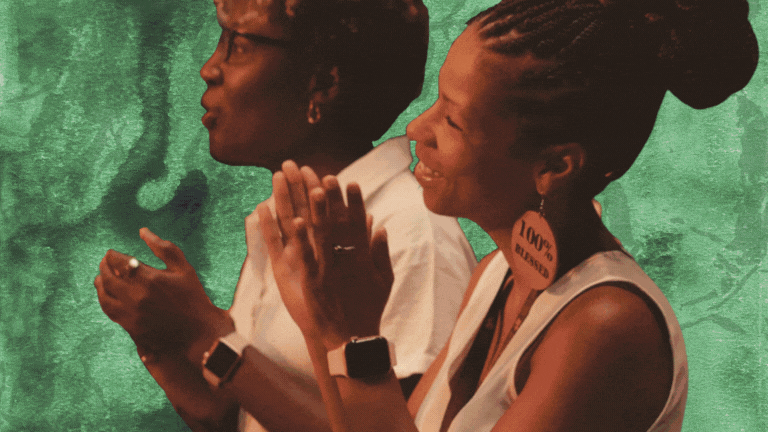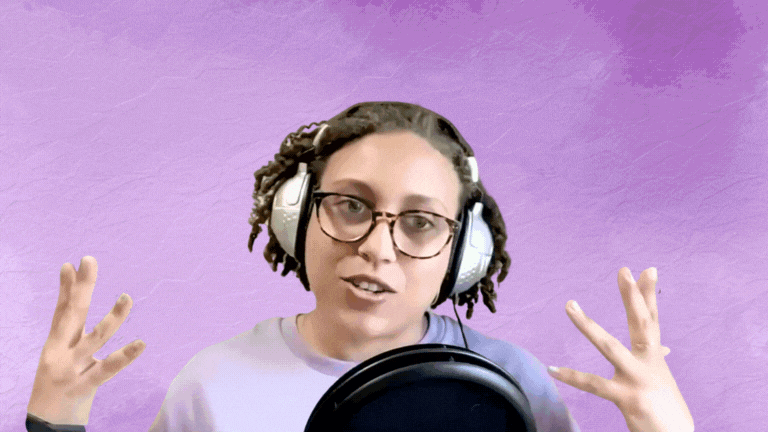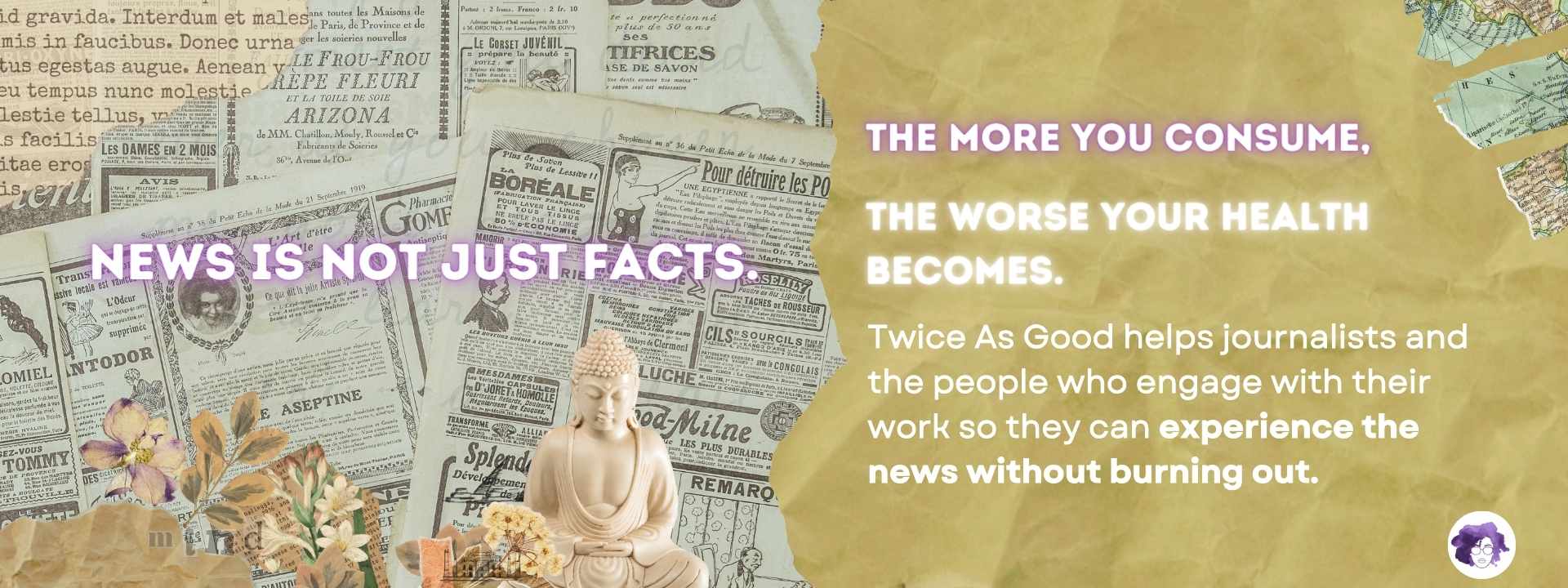
Recent events have made it clear that mindful journalism is already being realized, and the movement is led by BIPOC journalists.
There's a movement underway and it’s reshaping the media landscape in North America.
Back in the 1800s, English journalism embraced the myth of objectivity, presenting journalism as a science. Now, media workers and everyday people are waking up to the realization that the old news paradigm might be broken, or perhaps it needs to be broken.
Gone are the days when the means of production and distribution were exclusively controlled by corporate broadcast networks and their employees.
I’m reminded of a student journalism conference I went to in 2015. Leaders from major news outlets discussed adapting to the digital era by developing apps, tracking website clicks, and using SEO. Despite these efforts many of those outlets have continued to shrink and lay people off, or even disappear altogether. In their place, independent and alternative news sources have risen to prominence. Today, anyone can be a journalist thanks to the digital age.
Recently, I've had the opportunity to connect with some of those people. Groups who are actively seeking to expose injustice and rebuild journalism from the ground up. They aim to address issues such as the disproportionate harm against non-white communities, the blaming and dehumanizing of gendered victims, the unfair treatment of journalists of colour, and the perpetuation of myths serving white supremacy.
Today I want to tell you about a few of those groups.

If you had a copy of this document you could turn it over to the back and see a logo for the International Decade of People of African Descent (UNDPAD) together with logos for the National Black Canadians Summit (NBCS), and the Michaëlle Jean Foundation.
That’s because the UNDPAD is the central reason for the summit, and for the existence of the Halifax Declaration.
The DPAD–an international agreement committing United Nations countries to supporting Black justice, ends in 2024.
It’s the end of the decade that saw the rise of the Black Lives Matter movement, increased diversity and representation in business, film and TV, and large injections of cash into nonprofits and social enterprises serving Black communities across the globe.
“The UN General Assembly proclaimed 2015-2024 as the International Decade for People of African Descent citing the need to strengthen national, regional and international cooperation in relation to the full enjoyment of economic, social, cultural, civil and political rights by people of African descent, and their full and equal participation in all aspects of society.”
Anticipating the end of the decade, the Michaëlle Jean Foundation put together the National Black Canadians Summit, and at the end of the second event (the first was in Toronto) they announced that they would be publishing a wide sweeping document calling for Canadian government, businesses and nonprofits to continue their commitment to Black–and Indigenous–history, culture and arts, economic empowerment, education, healthcare, housing, human rights, seniors, athletes, and engagement in democracy.
The Declaration also called for greater recognition in media:
“We urge all media, including public and private, local and national, as well as social media networks, to recognize and assume their ethical responsibility to take appropriate action against hate speech, racism, and any reinforcement of such prejudices. At the same time, to ensure greater diversity of ideas and perspectives, we demand that these entities ensure professionals of African descent are represented at all levels—including decision-making, technical, and production—and given a say over content, and contributors invited across all areas and subjects covered, without distinction.”
By the way, what ensures the inclusion of Black perspectives on all aspects of life more than media that is Black owned?
They also urged for…
“recognition of the fact that colonization was an abhorrent crime against humanity from the outset, and that such acknowledgement, seeking to decolonize our institutions, our systems and our laws, is both beneficial and necessary.”
That includes journalism.

The RISE conference for BIPOC journalists showed me that we already know what needs to change in journalism.
In an interview with Matthew DiMera of The Resolve, Desmond Cole talked about the urgent need to end racial stereotyping in crime coverage.
He also pointed out that the responsibility to do better journalism rests not only on individual journalists, but also requires systematic change in the industry. After explaining some of the changes that need to happen in crime reporting, he also called for journalists to organize collectively around the terms of their labour and the quality of life they experience as a result of their work.
Later in the day, CBC producers Tamara Baluja and Thandiwe Konguavi presented on The Power of First Person Storytelling. They say (and I believe) that this kind of storytelling fosters greater representation and genuine connection by turning abstract concepts into relatable experiences that we can all learn from.
We also enjoyed a free screening and panel discussion of Black in the Newsroom, “an award-winning 15-minute documentary film exploring the story of Elizabeth Montgomery, a talented journalist who lands her dream job in a major U.S. newsroom—but ends up fighting a deep-rooted system of harm.” The speaker, Elizabeth Montgomery, works with Media 2070—an organization that highlights how the media can serve as a lever for greater justice, starting with media reparations.
Mindful journalist Michael Newman then guided us through a collective meditation to reset after a string of intense conversations, and then I presented on Mindful Journalism Methods.
In the book Mindful Journalism and News Ethics in the Digital Era (2015) journalist and communications professor Shelton Gunaratne proposed a secular framework for changing the way we approach journalism. Gunaratne spent decades working toward a new journalism grounded in ethics that resist Westernization and injustice while remaining fair, balanced, and constructive.
In the years leading up to that textbook, Gunaratne noticed a trend. After the 2008 recession, one of the biggest international newswire services, American Press–where many of the articles you see on most major news site come from–greatly increased its coverage of celebrity and entertainment news by hiring dozens of journalists in LA, New York and London.
Then, because the smaller, local newspapers got so many of their articles from the newswire service, their coverage of those topics increased too.
Why did AP invest in those coverage topics? Because it draws eyeballs and clicks, and advertising dollars.
This (and decades of research) led Gunaratne to conclude that because journalism was so dependent on advertising to survive, and advertising revenue was hard to come by, the connection between journalism and democracy was weakened. We started worrying less about the social good, and worried more about the needs of our advertising clients.
Trends like these eventually led Gunaratne and co-authors to write the only Mindful Journalism textbook (in English at least) so that journalists of the future could use it to rebuild the link between journalism, democracy, and you.
They concluded that toward this end, Buddhist ethics could indeed be translated into a professional journalism practice.
The seeds of this transformation were sown long ago in South and Southeast Asia, where people have long called for meaningful change in Western journalism. Now, these ideas are taking root in North America. Black folk and people of colour are using mindfulness to heal the harm caused by journalism, to both journalists and the public.
The Halifax Declaration, the RISE conference and the Mindful Journalism textbook have made this much clear: mindful journalism is not a distant dream but a reality waiting to be fully realized.
That paradigm shift is led by Black, Indigenous, and people of colour.
We didn’t break it, but we sure can fix it!
